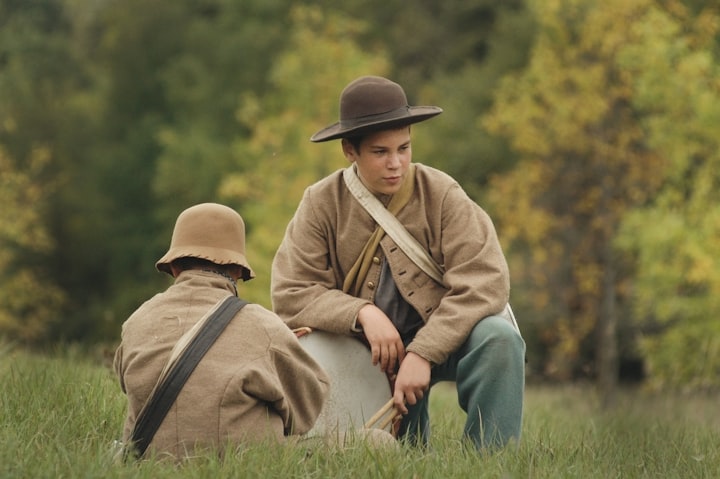In 1920, Poland Saved Europe from the Soviets
August of 1920 — Trotsky’s Army Looked Invincible. Except For The Poles.

With the defeat of the German and Austro-Hungarian Empire in the First World War and the collapse of the Russian Empire in the Bolshevik revolution of 1917, the 3 forces occupied Poland since 1795 were extinguished.
Thus, on November 11, 1918, the country returned to the map and until today it is on that date that Poland celebrates its national independence.
It was a short-lived joy.
Three months and 3 days after independence, on February 14, 1919, the new country entered in a conflict with a new but incredibly aggressive enemy: the red army, led by Leon Trotsky, intending to spread the communist revolution throughout Europe.
In 1919, Communist forces already steamrolled over Ukraine, Belarus and Lithuania, and started their attack over Poland’s eastern border. The head of the Polish state at the time was Marshal Jozef Pilsudski, a military who rose to the government after victories in the independence battles.
Pilsudski’s forces repelled the first attacks and the Soviets offered a peace deal. However, mathematicians at the University of Warsaw and the University of Lviv had deciphered the communists’ internal communication codes and found that the deal offered was false, just a way for the enemy to buy time for a new attack.
Pilsudski decided to ignore the false Bolshevik proposal and forged an alliance with Ukrainian leader Symon Petliura, who added 35,000 soldiers to the contingent prepared to repel the imminent Soviet aggression. The Polish and Ukrainian armies achieved some initial victories, but in 1920, with the reduction of internal conflicts, the communists were able to mobilize practically all their forces for a great and devastating attack.
Trotsky wanted to win the war quickly.
By April 1920, Trotsky’s armies had mobilized an incredible amount of 757,000 combatants, and by August 1920 they were already on the outskirts of Warsaw (despite having suffered a considerable number of casualties on the way).
Polish defeat seemed imminent.
On August 5, 1920, Pope Benedict XV called on all the bishops of the world to pray for divine mercy for unfortunate Poland.
It was then that on August 12, 1920, the battle began that is still called by the Poles today Cudem nad Wisłą, or “The miracle of the Vistula river”. That was when the Polish army attacked an enemy that until then was the most powerful, numerous and inhuman war machine in the world.
The Red Army, in a few days of battle, advanced to Izabelin, north of Warsaw, easily defeating the Polish resistance it encountered. However, this was only a trap set by Pilsudski. The leader of the Polish army reserved most of its forces to the south of the city, leaving only a symbolic amount of men to face the Soviets in the north. The apparent lack of defense in the north of the city encouraged the Bolsheviks to move most of their forces in that direction, with only the Mozyr group remaining in the south.
On August 14, the Polish field marshal put into practice the next part of his trap and attacked the Russians from the south, cutting off the communist army’s communication Lviv and the reinforcements from there. The fighting lasted until August 15 and destroyed one of the villages in the region.
The following day, the Polish army returned to the north of the capital. This victory was followed by several others, and already on the evening of the 16th, the Poles had regained the city of Włodawa. The assault groups recovered 70 kilometers in 36 hours.
The speed of the victories impressed even Pilsudski.
On August 18, 1920, Soviet commander Mikhail Tukhachevsky (also called Red Napoleon), realizing the extent of his defeat, ordered the withdrawal. The Poles’ victory over the Soviets at that time prevented the Communist revolution, which had already overwhelmed most of Eastern Europe, from continuing to spread across the old continent.
On this victory, Pope John Paul II commented:
You know that I was born in 1920, in May, that is when the Bolsheviks marched on towards Warsaw. That is why, ever since the day of my birth, I have been carrying a great debt with regard to those who stood tall that day against the invaders and triumphed, paying for this victory with their own lives.
———
Author: Levi Borba, founder of Colligere Expat Consultancy, and author of the books Moving Out, Living Abroad and Keeping Your Sanity and O que o Brasil pode aprender com a Polônia: Lições para reconstruir um país.
About the Creator
Borba de Souza
Writer and business founder that enjoys writing about history and culture.
Founder of Small Business Hacks https://www.youtube.com/c/SmallBusinessHacks and https://expatriateconsultancy.com. My published books: https://amzn.to/3tyxDe0







Comments
There are no comments for this story
Be the first to respond and start the conversation.